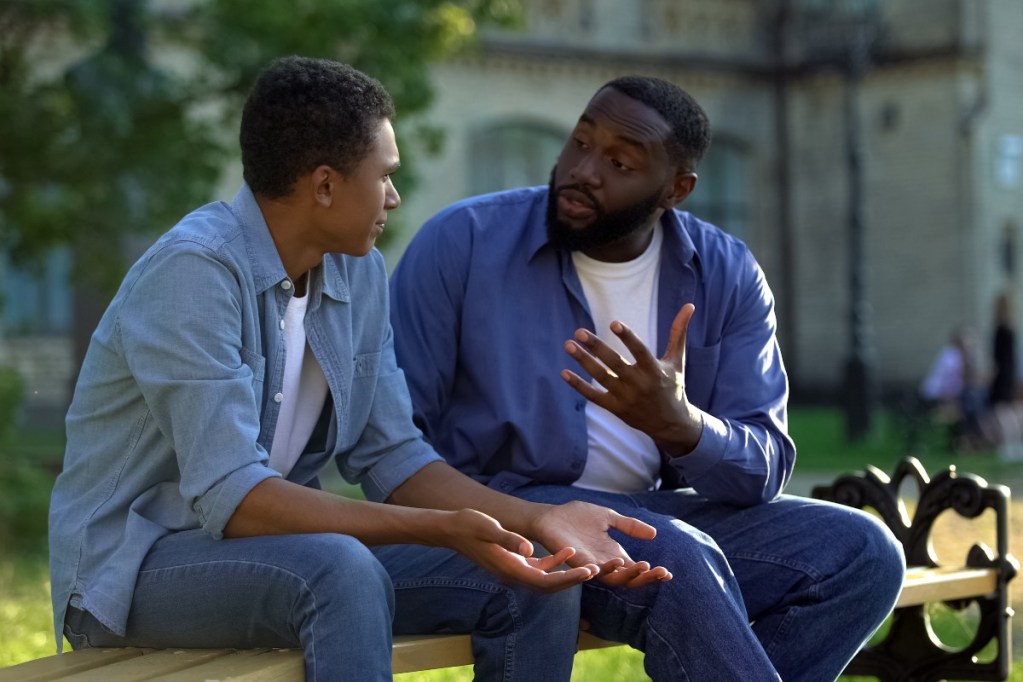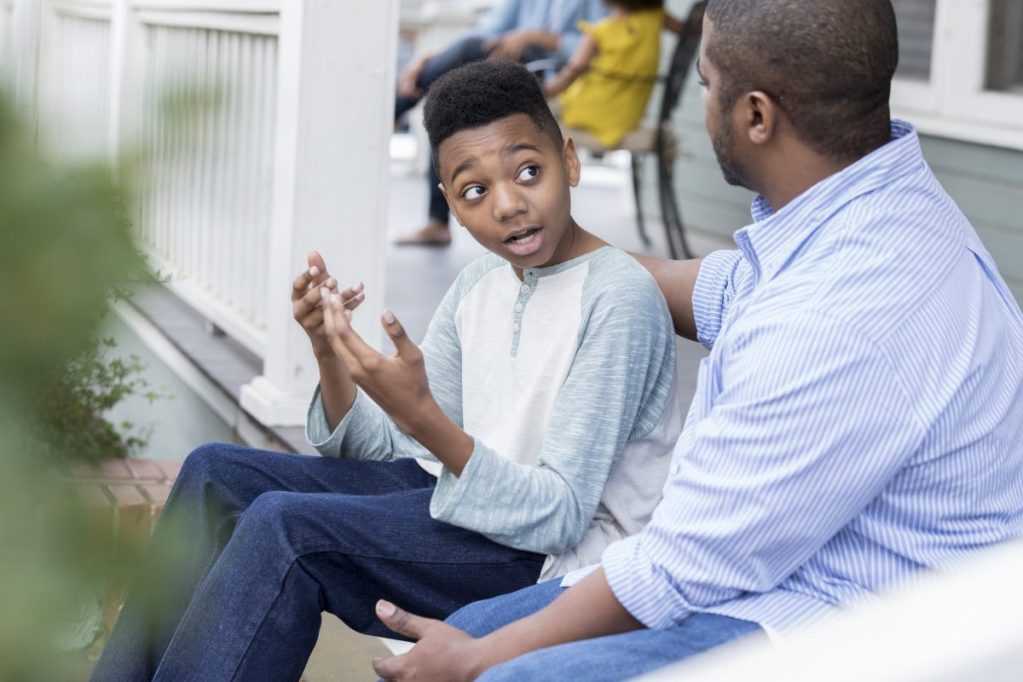That sing-songy, high-low, cracking, and croaking voice means one thing — puberty has officially arrived. If your son’s voice is suddenly all over the map — oscillating between soprano and bass — it means that some major physical and anatomical changes are on the way. His larynx is growing, and his pitch will eventually drop and your son’s voice will start to change. Say goodbye to that sweet little boy and his sweet little voice, and say hello to your emerging mini man.
Want to understand how, why, and when this will all happen and need some tips on how to handle this somewhat awkward but oh-so-relatable situation? Here is what you need to know about boys’ voice changes.
Why does a boy’s voice change?

The gist of it is that surging testosterone causes the larynx and vocal folds to thicken and grow, which deepens the pitch and timbre of a boy’s voice. While a girl’s vocal cords will also grow during puberty, they will generally max out around 10 millimeters, while a boy’s, on the other hand, can get to 16 millimeters. The longer the vocal cords, the deeper the voice.
When does a boy’s voice change?

This larynx growth generally starts around the active “Tanner stages” of puberty. This period also aligns with other hormonally driven physical and anatomical changes, too. His Adam’s apple will emerge (this is related to the larynx growth,) and, yes, his genitals are likely changing at this point, too.
Be aware that while this phase may kick off with a sudden growth spurt (like, you blinked and your kid grew a foot!), the overall change can be gradual. It may start around 11 or 12, and may end between 15 and 18 years of age. No two kids are alike, though, and some boys may go through this earlier or later than others. The whole puberty process can take up to three years. Some boys’ voices may take a while to adjust, while others may shift more quickly. If you or your child have any concerns, talk to your family’s pediatrician. (There is absolutely no shame in being inquisitive!)
How you can help your child

It is important to talk to your child about the changes happening in his body. A squeaky, cracking voice is just one aspect of puberty you will want to address. Maintaining open and honest communication can make this confusing time less uncomfortable for your child. You want your guy to know that he can turn to you with any and all concerns (no judgment and no embarrassment ever!), so use anatomical terms, be straightforward, and always approach the situation with empathy. It may be challenging (this is your baby, after all), but try not to shy away from the conversation.
Yes, the physical implications of puberty can be awkward for your child. Their voice may crack during conversations and their face may redden with humiliation. It’s like these changes are on display for the world to see. But puberty is a fact of growing up and it is chock-full of all sorts of less-than-confidence-boosting milestones.
To this end, remind your child that everyone goes through this to some degree or another. Other boys’ voices will be changing on their own timetables. Girls, too, are experiencing other confusing developments. None of these so-called growing pains feel particularly empowering in the moment, but they are all important aspects of getting older and eventually becoming adults. With your support and love, you can help your vulnerable kiddo understand that this too shall pass. Soon enough, your son’s voice will emerge, deeper and steadier than ever!
Growing up is hard to do! When a boy’s voice changes, it means he has reached an exciting and, yes, fairly turbulent time of adolescence. It is going to be a wild ride for sure. While you can’t do much to expedite the process (remember, this stage of puberty can last for a few years!), you can help by educating yourself, educating your child, and showing you care with a listening ear. Your son’s voice may crack, but your steady support and love will never waver.



